IPCP Board
The following experts are currently members of the IPCP board:
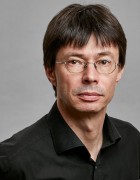
Martin Scheringer
Chair
Swiss Federal Institute of Technology (ETH), Zurich, Switzerland and
Research Centre for Toxic Compounds in the Environment (RECETOX), Masaryk University, Brno, Czech Republic
Martin Scheringer is a professor of environmental chemistry at RECETOX and a senior scientist at ETH Zürich. He is a chemist by training and has worked for more than 25 years in the fields of environmental and human exposure assessment, hazard assessment and risk assessment of chemicals. He is a founding member of the IPCP.
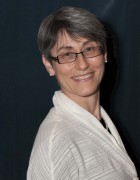
Miriam Diamond
Vice Chair
University of Toronto, Canada
Miriam Diamond studied biology, zoology, mining engineering and earned a Ph.D. in chemical engineering and applied chemistry. The goal of her multidisciplinary research program is to improve our understanding of chemical contaminants from emission, through to transport indoors and outdoors, and ultimately human and ecological exposure. Miriam Diamond joined the IPCP board in 2015.

Andreas Schaeffer
Treasurer
RWTH Aachen University (RWTH), Germany
Andreas Schaeffer is a chemist and professor emeritus of environmental biology and chemical dynamics at the RWTH Aachen. His main research interests are the fate and effects of organic xenobiotics such as pesticides and industrial chemicals in soil, water, sediments, plants, and organisms. The goal of his studies is the assessment of the persistence and risk of environmentally relevant compounds. Andreas Schaeffer joined the IPCP board in 2020.

Marlene Ågerstand
Stockholm University, Stockholm, Sweden
Marlene Ågerstrand is associate professor in regulatory ecotoxicology. Her research focuses on understanding the science-policy interactions in risk assessment and management of chemicals. Aspects of interest include evaluation of data for use in decision-making, the efficiency of management options, and the role of experts in decision-making. Marlene Ågerstrand joined the IPCP board in 2021.
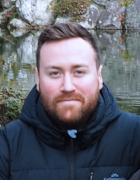
Michael Bertram
Swedish University of Agricultural Sciences, Sweden
Michael Bertram is an assistant professor in ecology and ecotoxicology. His research focuses on understanding the impacts of human-induced environmental change on ecological and evolutionary processes in wildlife. He is interested in uncovering how exposure to “emerging” forms of chemical pollution can disrupt complex traits and behavioural processes in wild animals. He addresses these questions using a combination of lab and field approaches to uncover how contaminants affect animals across multiple levels of biological organisation, from individuals to populations and communities. Michael joined the IPCP board in 2024.

Alex Ford
University of Portsmouth, UK
Alex Ford is a professor of biology at the Institute of Marine Sciences. For over two decades he has been researching in the field of environmental toxicology, parasitology and aquatic ecology. His primary expertise is in invertebrate ecotoxicology and has worked with a wide range of chemical contaminants including endocrine disrupters, pharmaceuticals, nanoparticles, plastics as well as legacy compounds. He is currently the Deputy Director of the Centre of Blue Governance and joined the IPCP board in 2024. He is a keen advocate of One Health approaches and transdisciplinary knowledge to better safeguard human and ecosystem health.
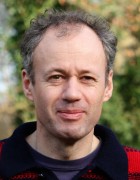
Rainer Lohmann
University of Rhode Island, Kingston, RI, USA
Rainer Lohmann is Professor of Oceanography, with degrees in Chemical Engineering and Environmental Sciences. His research group validates and uses passive sampling approaches for the detection, transport, fate and bioaccumulation of organic contaminants from contaminated sites to the Earth’s poles. He is also Director of the URI-lead STEEP (Sources, Transport, Exposure and Effects of PFASs) Superfund Research Center. Rainer Lohmann joined the IPCP board in 2020.

Gabriel Sigmund
Wageningen University, The Netherlands
Gabriel Sigmund is an assistant professor in the environmental technology division. He is actively bringing researchers together to highlight the issue of chemical pollution to experts not commonly focusing on chemical pollution. He continues to advance understanding on chemical fate in environmental and technical systems, to inform the development of safe and sustainable by design chemicals. With a particular focus on water, he is deeply involved in the development and assessment of mitigation measures for chemical pollution that range from policy options to technological solutions. Gabriel Sigmund joined the IPCP board in 2024.
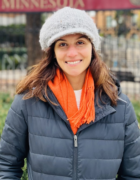
Maria Clara Starling
Universidade Federal de Minas Gerais, Brazil
Maria Clara Starling a professor and researcher at the Department of Sanitary and Environmental Engineering. She leads research in the field of ecotoxicology and risk assessment in areas impacted by urbanization and mining, as well as other industrial activities. She is currently investigating the occurrence and toxicity of contaminants of emerging concern, including PFAS, microplastics, antibiotic resistance bacteria and genes, drugs and personal care products in water, sewage, and hospital wastewater. Maria Clara Starling joined the IPCP board in 2024.
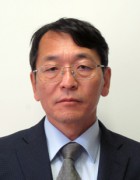
Noriyuki Suzuki
National Institute for Environmental Studies, Tsukuba, Japan
Noriyuki Suzuki has been working on the research of environmental fate of trace contaminants. Currently, use of GIS-based multimedia fate models is the major methodology of fate analysis study on industrial chemicals, POPs, pesticides and mercury, however analytical efforts are always in combination based on the former experiences of trace analysis of dioxins and water contaminants. He recently has a major focus on the application of spatially/temporally resolved modeling output to risk evaluation, in terms of geographical and temporal variability, toxicity concern and social context. He was a founding member of the IPCP in 2008.
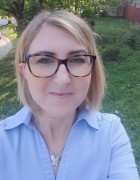
Marta Venier
Indiana University, Bloomington, IN, USA
Marta Venier is an environmental analytical chemist. Her research focuses on the global fate and transport of persistent organic pollutants. Her laboratory employs analytical chemistry and mass spectrometry techniques to provide analyses of POPs and organic toxic chemicals in the environment and people. Since 2018 she is the Principal Investigator of the US EPA funded Integrated Atmospheric Deposition Network (IADN). Marta Venier joined the IPCP board in 2021.
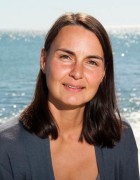
Penny Vlahos
University of Connecticut, Storrs, CT, USA
Penny Vlahos is a professor in the Department of Marine Sciences and a chemical engineer by training. Her research interests lie in the transport of natural and anthropogenic compounds in the environment and their links to human health. She is a Fulbright Specialist and on the pool of experts for the United Nation’s Oceans Assessment Reports. The IPCP creates a platform to consolidate scientific data and provide consensus strategies for the global community. Penny Vlahos joined the IPCP board in 2021.
IPCP Board Support

Robert J. Letcher
Chair of Election Committee
Carleton University, Ottawa, Canada
Robert Letcher is an Adjunct Professor of environmental/analytical chemistry and ecotoxicology in the Departments of Chemistry and Biology, and a senior research scientist with Environment and Climate Change Canada at the National Wildlife Research Centre, Carleton University in Ottawa, Ontario, Canada. He is a Fellow (Academy of Science) of the Royal Society of Canada. For over 20 years, he has researched on chemical pollution and environmental persistence, exposure, bioaccumulation, fate, metabolism and effects in biota and their ecosystems throughout Canada and internationally. His research has influenced risk assessment and management of chemicals in Canada and worldwide. He has been an IPCP Election Committee Member since 2014.
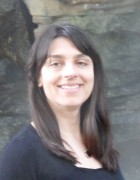
Anna Soehl
IPCP Executive Director, USA
Anna Soehl plays a supportive role to the IPCP Board including such activities as communicating with IPCP members, exploring funding opportunities, and assisting with IPCP projects, meetings, and elections. Anna holds an MSc in environmental science and policy. Her professional experience includes working as a Science and Policy Consultant at the Green Science Policy Institute, an Air Toxics Project Manager at the Great Lakes Commission, and a Natural Resources Planner and Environmental Scientist at the Maryland Department of the Environment.